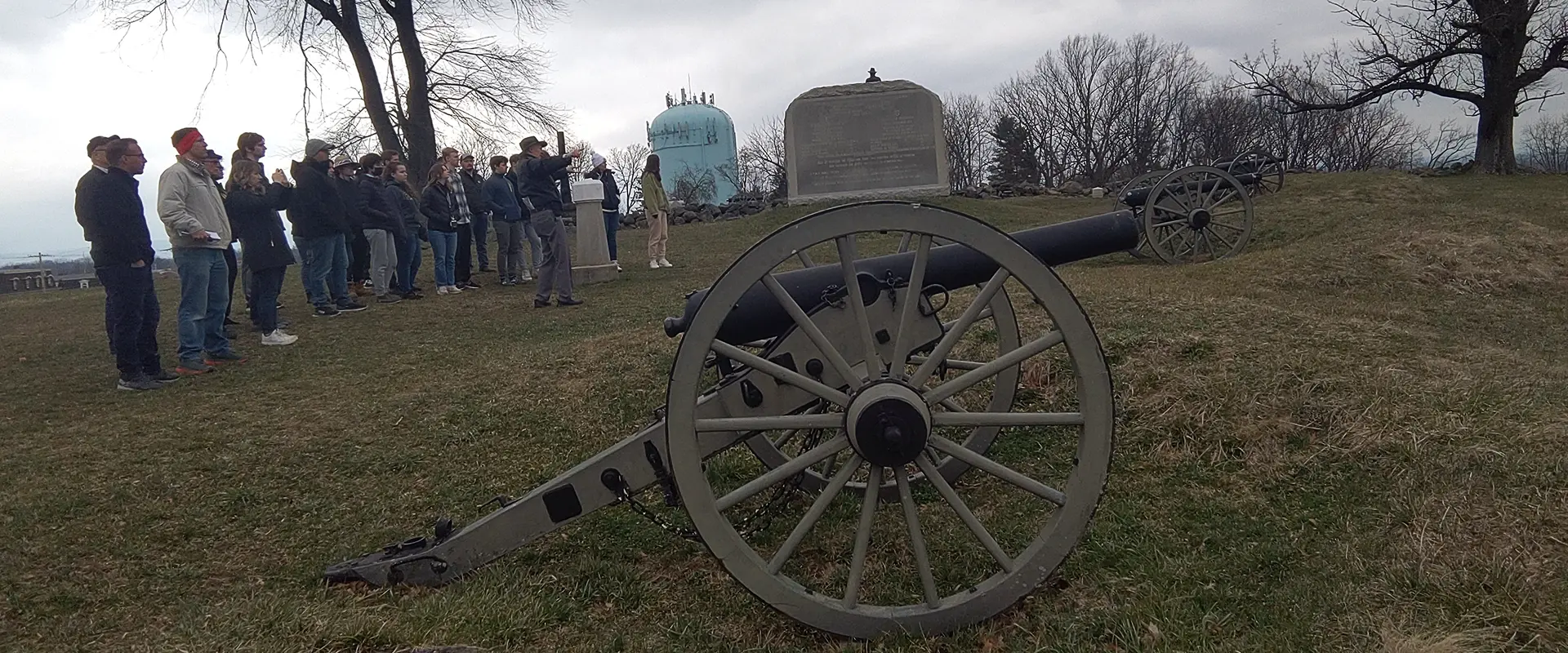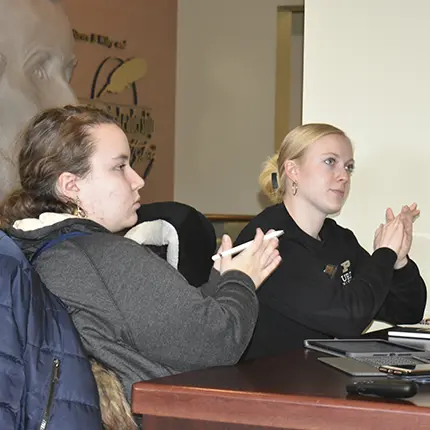
More than 25 students from Purdue’s Mitchell E. Daniels, Jr. School of Business examined President Lincoln’s leadership style and participated in case studies examining the actions of Civil War leaders who fought in the historic battle through “A Transformational Journey from Gettysburg.” The five-day, two-credit immersion course was developed by the Larsen Leaders Academy in partnership with the Lincoln Leadership Institute at Gettysburg.
“The knowledge and experiences gained through this course will help students lead in stressful, uncertain situations where resources are limited and change is a constant,” says Professor Brad Alge, academic director of the LLA. “These challenges were present in 1863 and are ubiquitous in most organizations today.”
Using history as a metaphor and the battlefield as a classroom, students experienced how leadership can transform teams and organizations, developed essential communication skills, learned how to think strategically and critically, and discovered both the rational and emotional components of being a leader.
In one case study, for example, students examined the strategic advantage seized by Gen. John Buford, whose choice of Gettysburg as the field of battle gave Union forces the tactical “high ground.” Participants were asked to explore their own “high ground” and identify potential conflict between personal and organizational values.
 Another case study focused on building dedication and engaging the disengaged by examining the leadership of Col. Joshua Chamberlain, commander of the 20th Maine Regiment, and his heroic efforts to protect the left flank of the Union Army. “From an organizational standpoint, the ‘left flank’ represents a company’s weaknesses,” Alge says. “If it collapses, the organization collapses.”
Another case study focused on building dedication and engaging the disengaged by examining the leadership of Col. Joshua Chamberlain, commander of the 20th Maine Regiment, and his heroic efforts to protect the left flank of the Union Army. “From an organizational standpoint, the ‘left flank’ represents a company’s weaknesses,” Alge says. “If it collapses, the organization collapses.”
Throughout the course, students focused on specific themes that defined Lincoln’s leadership and communication style over the course of the entire war, including the historic Gettysburg Address he delivered four and half months after the battle.
“Most of us realize that people have different strengths and abilities,” Alge says. “But we also process communication in different ways, making it critical that we understand the preferences of others and adapt our messages, either verbal or written, to reach a broad range of individuals. Lincoln knew that almost intuitively and gave one of the greatest speeches in American history.”
Other highlights from the trip included walking the path of Pickett’s Charge on the battle’s fateful third day, as well as a talk from Rear Admiral (RET) Scott Moore, who commanded Navy SEAL teams on numerous hostage rescues. “His primary message was mission first and people always,” Alge says. “You can’t have one without the other.”
In addition to Alge, participating LLA staffers included Director Steve Shelby and Program Manager Cara Cray. “We’re a three-person team,” Alge says. “Everyone plays a part in making it happen.”
Importantly, the experience came at no cost to LLA students, whose trips were funded by gifts from the academy’s namesakes, Marshall and Susan Larsen. Thanks to their generosity, students will have the opportunity to participate in other life-changing capstone immersion trips each spring, including the Kennedy Space Center at NASA to study risk and decision making, Yosemite National Park to experience leadership vulnerability, and the European Theatre during WWII to learn humility and resolve.
“The Gettysburg immersion trip was both helpful and lifegiving,” says LLA student Austin Watson. “The executive-level leadership training taught through the lens of Civil War leaders was impactful, and the new friendships I built with Larsen peers made me wish I could do it all over again. This trip will have ripple effects on the way I serve as a leader and interact in teams for years to come.”